
Biotin supplements used for cancer-related hair loss may interfere with key blood tests, risking inaccurate results and altered care decisions.

Biotin supplements used for cancer-related hair loss may interfere with key blood tests, risking inaccurate results and altered care decisions.

Dr. Brittany Dulmage explains how biotin can interfere with lab testing and discusses safer, evidence-based options for managing cancer-related hair loss.

As patients with advanced cancer near the end of life, reducing unnecessary medications may help prioritize comfort, quality of life and symptom relief.

I share how choosing what to do with my hair during treatment helped me reclaim control and redefine empowerment.

As part of her journey with stage 3 inflammatory breast cancer, Lindsey Gunter experienced chemotherapy side effects so severe that she was unable to walk.

After her own breast cancer treatment, Maureen advocated for legislation to make scalp cooling more accessible for patients seeking to preserve their hair.

CURE spoke with experts about possible side effects faced by patients with breast cancer.

After decades of lymphedema, breast cancer survivor Nora Ambros finds relief through robot-assisted microsurgery at Hackensack University.

Heather Ann Yonker expands on strategies for maintaining food safety in the home, particularly for patients with compromised immune systems due to cancer.
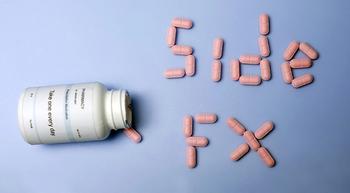
Napo Pharmaceuticals applied for orphan drug designation for Mytesi to treat diarrhea in patients with breast cancer and brain metastases on targeted therapy.

An LED-based intraoral device was safe and reduced severe oral mucositis and throat pain in patients receiving radiotherapy for head and neck cancers.
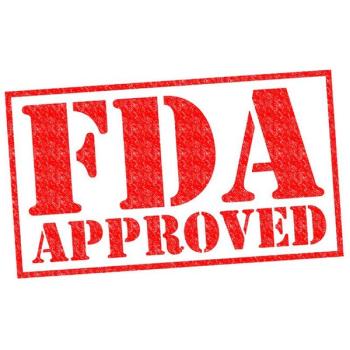
The FDA approved Bosaya and Aukelso, biosimilars of Prolia and Xgeva, respectively, for the treatment of solid tumors, like breast and prostate cancer.
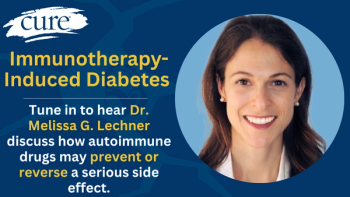
Existing autoimmune drugs may prevent or reverse a serious side effect faced by patients with cancer.
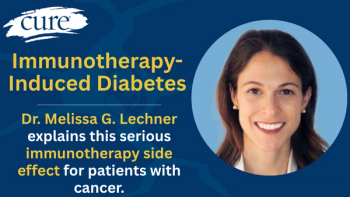
CURE spoke with an expert to learn what patients need to know about immunotherapy-induced diabetes.

I urge researchers to look into why side effects occur in cancer drugs and to find ways to mitigate them that doesn’t impact their efficacy.

Summer heat can worsen my lymphedema, but I’ve learned simple ways to stay cool, reduce swelling and protect my arms — here’s what helps me most.
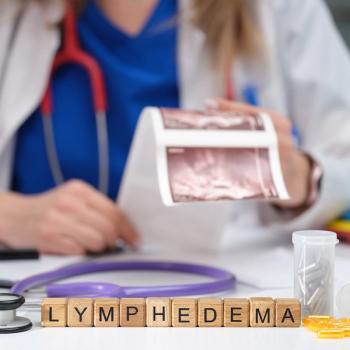
New results from a breast cancer-related lymphedema study show the importance of measuring fluid and body composition before treatment begins.

LUT014, a BRAF inhibitor gel, improved acne-like rashes in patients with colorectal cancer undergoing anti-EGFR therapy, according to UCLA researchers.

Dr. Sheri Yolanda Prentiss discusses the importance of seeking early intervention to detect lymphedema following cancer care.

A test to identify higher risk of developing urinary side effects after radiation in patients with prostate cancer was confirmed by data from a new study.

Dr. Sheri Yolanda Prentiss discusses lymphedema as a result of cancer treatment and shares resources that exist for patients coping with this condition.

Dr. Sheri Yolanda Prentiss explores the challenges patients face in accessing lymphedema compression garments following cancer treatment.

Among patients with cancer, high out-of-pocket costs were found to impact access to health care, adherence to medication, as well as quality of life.

CURE spoke with Leslie Waltke about the importance of physical therapy during a cancer journey.

Researchers have found childhood cancer survivors are at risk of experiencing onset of aging-related disease 17.7 years sooner than the general population.
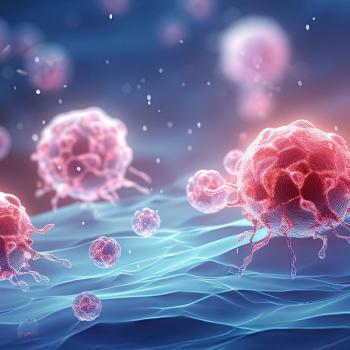
Although itolizumab did not improve response rates at Day 29 for patients with acute GVHD, the therapy showed significant benefits in long-term outcomes.

Dr. Sheri Prentiss discusses what steps patients can take to ensure they're being screened for lymphedema prior to starting their breast cancer treatment.
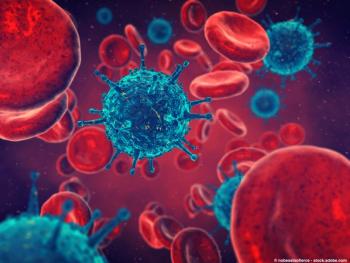
Treatment with the T-cell immunotherapy Orca-T improved survival free of moderate-to-severe chronic graft-versus-host disease across leukemia subtypes.

The first patient has been dosed in a phase 2b trial evaluating the first-in-class agent Halneuron for those with neuropathic pain following chemotherapy.

Dr. Deepa Jagadeesh discusses Ordspono's potential FDA approval for relapsed/refractory follicular lymphoma, highlighting its manageable toxicity and low CRS rate.